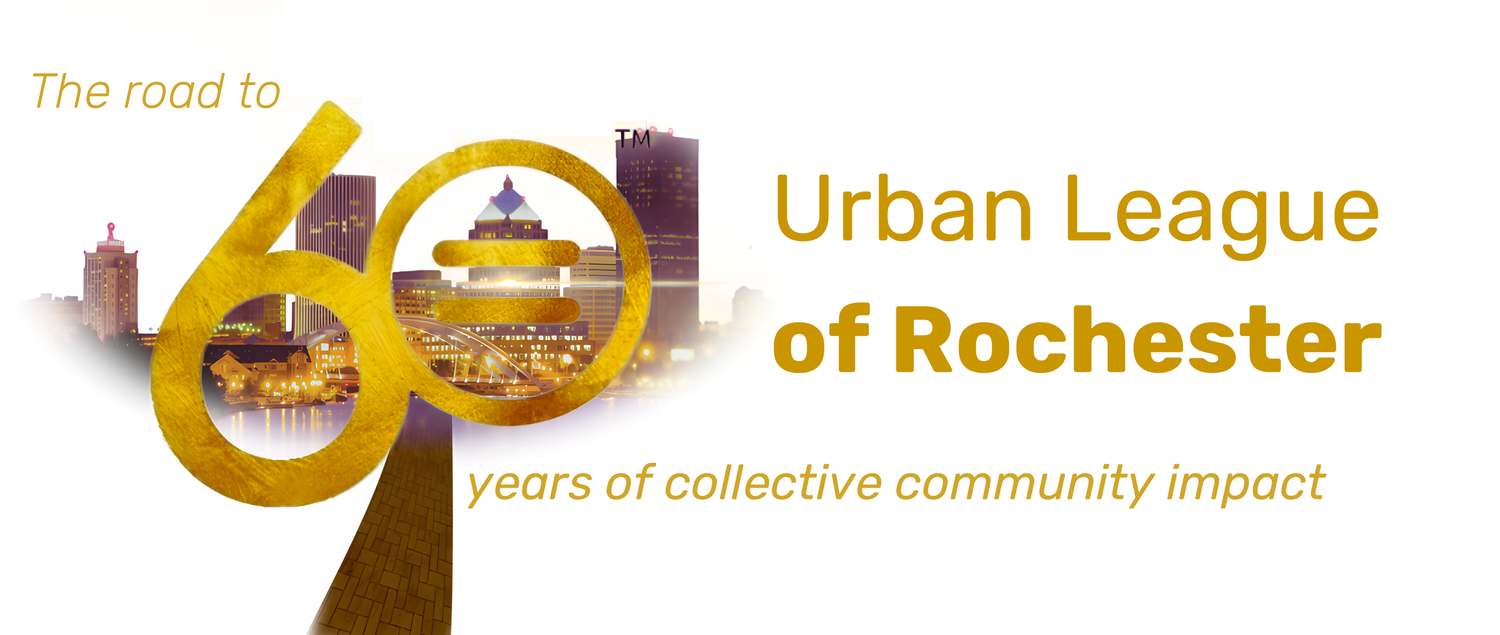Urban League releases 2020 INTERRUPT RACISM Report of 18 actionable steps toward equity in Rochester
Also available today are the INTERRUPTER Toolkit—an antiracism resource library—and the return of the INTERRUPT RACISM Community Survey.
Today the Urban League of Rochester is releasing their 2020 INTERRUPT RACISM Report. Containing 18 equity recommendations for the Rochester community based on direct feedback from community members, the wide-ranging report is authored by Dr. Seanelle Hawkins, President and CEO of the Urban League of Rochester.
“For us to see real change, we need what Dr. King called a ‘revolution of values,’” Hawkins stated, “As we celebrate Dr. King’s legacy, we immediately think of his ‘I Have a Dream’ speech, but he didn’t stop at having a dream: He called for change, a ‘revolution of values,’ an interruption to the status quo. This report is our first step toward that revolution for Rochester.”
“A true revolution of values will soon cause us to question the fairness and justice of many of our past and present policies.”
The 18 action-oriented recommendations the Urban League proposes in the report are based in community members’ real-world experiences across six core themes: education, police, housing, employment and job training, education, and health. The data set for the report, which was organized and analyzed by Dr. Ammina Kothari and Dr. Katrina Overby of Rochester Institute of Technology, draws from responses to the INTERRUPT RACISM Community Survey, a collective impact measure. The survey is re-opening today to continue to collect antiracism recommendations and personal experiences of prejudice from Rochesterians.
“We can’t make a change toward equity until we recognize the challenges we’re facing,” added Hawkins. “Our report lays bare the pain points and problems that Dr. King would say we have a moral responsibility to address.”
While many of the report’s recommendations assign responsibilities to specific governing bodies and organizations, it intentionally elevates the voices of individuals who might not otherwise have a seat at policy tables and, in so doing, empowers community members to do their individual part in turn in effecting positive change. Hawkins calls these individual change leaders Interrupters.
“The Urban League is so grateful for the commitment of the Interrupters who are already showing up to do this equity work, who are already prepared for the revolution,” said Hawkins. “And we hope that others who read this report will be activated toward our goal of an equitable Rochester.”
Interrupters will have a whole new set of tools to support their work in the form of the aptly-named INTERRUPTER Toolkit, also launching today. This antiracism resource library is the first public initiative by the new Equity and Advocacy Division at the Urban League since the Racial Equity and Justice Initiative (REJI) became part of INTERRUPT RACISM last month. From individual “First Steps” to broader “Organizational Change,” the Toolkit contains articles, books, videos, and other online resources for every level of experience with fighting systemic racism and prejudice.
The INTERRUPTER Toolkit
Hawkins described the Toolkit as “a guidebook to the revolution of American values that must take place.” She also expressed concern that “We don’t have time to wait around for months and years on committees to get this right. Black and brown folx are dying, the ones most impacted by the double pandemic of COVID and racism. So this Toolkit helps get everyone up to speed on what needs to be done.”
In her report, Hawkins cites data from the National Urban League that showed that Black individuals in the US were 2.7 times more likely to be infected by COVID-19 than whites and that Latinx people were at an even higher risk at 3.2x. But Black Americans were 3.6 times more likely than white Americans and nearly twice as likely as Latinx Americans to ultimately die from COVID-19.
Though these are grim figures, Hawkins remains hopeful that Rochester can quickly “get to work” on the 18 recommendations in the report. “We have to,” she said, paraphrasing Dr. King, “If we don’t act now, things could get a lot worse. And we need everyone’s help to make equity a reality.”
“We still have a choice today [...] If we do not act, we shall surely be dragged down the long, dark, and shameful corridors of time reserved for those who possess power without compassion, might without morality, and strength without sight. Now let us begin.”
Questions and press inquiries may be directed to William Rivera-Bloodworth, Marketing, Communications, and Digital Engagement Officer, at wrivera@ulr.org.


